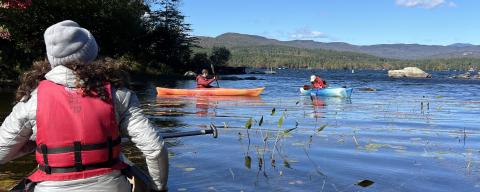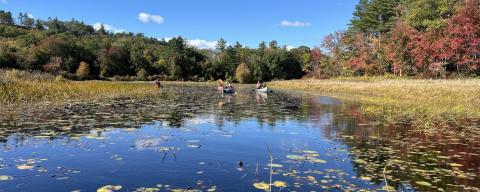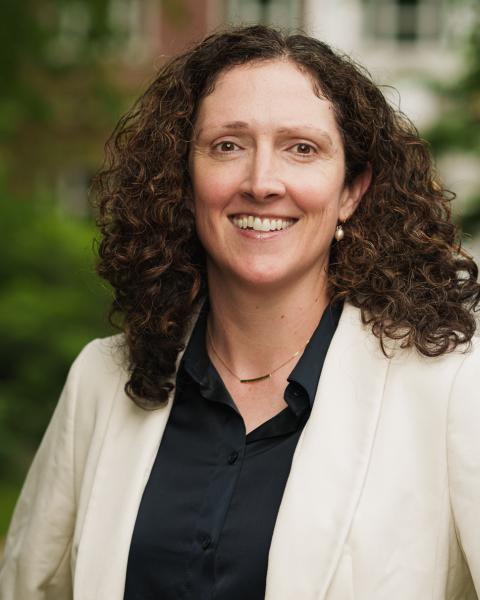Paddling Together: Lakes, Tourism, and Balancing Uses
New Hampshire is home to more than 1,000 lakes. An amazing statistic for a small state. It’s fair to say we take great pride in the beauty and cleanliness of these water resources as well as the important role they play in our tourism economy and general quality of life.
Two weeks ago, during the NETtra Tourism Conference (a partnership between UNH Extension, the National Extension Tourism Conference [NET], and the Northeast Chapter of the Travel and Tourism Research Association [NETTRA], held in Meredith, NH), UNH Extension hosted a mobile workshop at the Squam Lakes Association in Holderness, NH. Squam Lake is known for its conservation initiatives and for being the filming location of the 1981 film "On Golden Pond."
Colleagues from Cooperative Extensions across the Northeast, along with local community members, met at Squam Lakes Association to hear about how they create opportunities for visitor use and enjoyment while also helping protect the lake's special environment. Kyle Salmons, Director of Education at the SLA, was our guide. After a wonderful discussion of history and mission and then a tour of the facilities (that were recently renovated with support from CDFA to serve as a community center for the region, including the addition of a water quality lab), we were able to get out for a canoe in Piper’s Cove to observe the lake's aquatic and recreational assets first-hand.
The Lay Lakes Monitoring Program has monitored the lake since 1979 and shared methods with SLA for the water quality lab establishment.
This mobile workshop was led by Amanda McQuaid, UNH Extension State Specialist and Professor of Water Quality and Ecotoxicology/Director of Lakes Lay Monitoring Program, and Shannon Rogers, UNH Extension State Specialist and Extension Professor Nature-Based Economic Development and Natural Resources & the Environment.
Several workshop participants are currently tackling projects in their own regions that strive to balance conservation with access to outdoor recreation. The visit to Squam Lake provided inspiration for what can be possible when educators, researchers, and community members come together to protect and celebrate a place they love.


